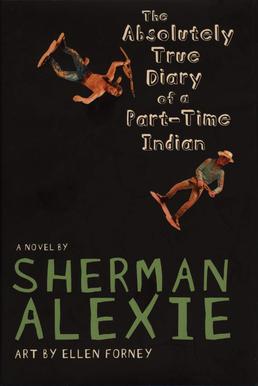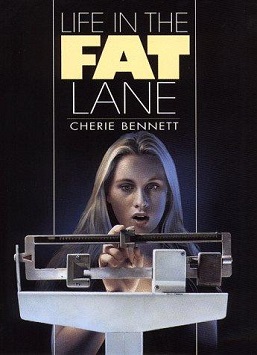
Enoch Arnold Bennett was an English author, best known as a novelist who wrote prolifically. Between the 1890s and the 1930s he completed 34 novels, seven volumes of short stories, 13 plays, and a daily journal totalling more than a million words. He wrote articles and stories for more than 100 newspapers and periodicals, worked in and briefly ran the Ministry of Information in the First World War, and wrote for the cinema in the 1920s. Sales of his books were substantial and he was the most financially successful British author of his day.

Torah study is the study of the Torah, Hebrew Bible, Talmud, responsa, rabbinic literature, and similar works, all of which are Judaism's religious texts. According to Rabbinic Judaism, the study is done for the purpose of the mitzvah ("commandment") of Torah study itself.

A career is an individual's metaphorical "journey" through learning, work and other aspects of life. There are a number of ways to define career and the term is used in a variety of ways.

In the practice of Christianity, canonical hours mark the divisions of the day in terms of fixed times of prayer at regular intervals. A book of hours, chiefly a breviary, normally contains a version of, or selection from, such prayers.

Mrs. Dalloway is a novel by Virginia Woolf published on 14 May 1925. It details a day in the life of Clarissa Dalloway, a fictional upper-class woman in post-First World War England. It is one of Woolf's best-known novels.

Homework is a set of tasks assigned to students by their teachers to be completed at home. Common homework assignments may include required reading, a writing or typing project, mathematical exercises to be completed, information to be reviewed before a test, or other skills to be practiced.

Eknath Easwaran was an Indian-born spiritual teacher, author and translator and interpreter of Indian religious texts such as the Bhagavad Gita and the Upanishads.

In Our Time is a live BBC radio discussion series and podcast exploring a wide variety of historical, scientific and philosophical topics, presented by Melvyn Bragg, since 15 October 1998. It is one of BBC Radio 4's most successful discussion programmes, acknowledged to have "transformed the landscape for serious ideas at peak listening time".

The Liturgy of the Hours, Divine Office, or Opus Dei are a set of Catholic prayers comprising the canonical hours, often also referred to as the breviary, of the Latin Church. The Liturgy of the Hours forms the official set of prayers "marking the hours of each day and sanctifying the day with prayer." The term "Liturgy of the Hours" has been retroactively applied to the practices of saying the canonical hours in both the Christian East and West–particularly within the Latin liturgical rites–prior to the Second Vatican Council, and is the official term for the canonical hours promulgated for usage by the Latin Church in 1971. Before 1971, the official form for the Latin Church was the Breviarium Romanum, first published in 1568 with major editions through 1962.

Everyday life, daily life or routine life comprises the ways in which people typically act, think, and feel on a daily basis. Everyday life may be described as mundane, routine, natural, habitual, or normal.

The Lowell mill girls were young female workers who came to work in textile mills in Lowell, Massachusetts during the Industrial Revolution in the United States. The workers initially recruited by the corporations were daughters of New England farmers, typically between the ages of 15 and 35. By 1840, at the height of the Textile Revolution, the Lowell textile mills had recruited over 8,000 workers, with women making up nearly three-quarters of the mill workforce.

Timothy Ferriss is an American entrepreneur, investor, author, podcaster, and lifestyle guru. He was known for his 4-Hour self-help book series—including The 4-Hour Work Week, The 4-Hour Body, and The 4-Hour Chef—that focused on lifestyle optimizations, but he has since reconsidered this approach.

Saint Monday is the tradition of absenteeism on a Monday. Saint Tuesday is the less common extension of this to a Tuesday. The tradition of taking Monday off has been common among craft workers since at least the seventeenth century, when the workweek ran from Monday to Saturday as had been the custom and expectation for centuries.

The Absolutely True Diary of a Part-Time Indian is a first-person narrative novel by Sherman Alexie, from the perspective of a Native American teenager, Arnold Spirit Jr., also known as "Junior," a 14-year-old promising cartoonist. The book is about Junior's life on the Spokane Indian Reservation and his decision to go to a nearly all-white public high school away from the reservation. The graphic novel includes 65 comic illustrations that help further the plot.

Geoff Lloyd with Annabel Port was a drivetime radio programme, broadcast on Absolute Radio.

Christian prayer is an important activity in Christianity, and there are several different forms used for this practice.
Self-publishing is the publication of media by its author at their own cost, without the involvement of a publisher. The term usually refers to written media, such as books and magazines, either as an ebook or as a physical copy using print on demand technology. It may also apply to albums, pamphlets, brochures, games, video content, artwork, and zines. Web fiction is also a major medium for self-publishing.

Don't Forget the Bacon! is a children's book written and illustrated by Pat Hutchins. It was published by Bodley Head in 1976. The story is about a little boy who tries to memorise a list of groceries his mother has asked him to buy. The book has been used as a teaching tool to instruct children about early learning concepts.

Life in the Fat Lane is a novel for young adults written by Cherie Bennett. The novel was included among the American Library Association Best Books for Young Adults. It was published in 1998 by Delacorte Press.

Chris Bailey is a Canadian writer and productivity consultant, and the author of The Productivity Project (2016), Hyperfocus (2018) and How to Calm Your Mind (2022).


















